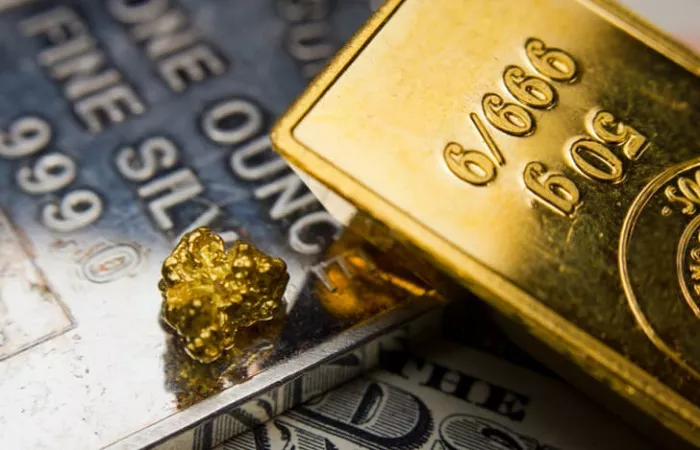Gold markets are grappling with conflicting forces, as intensifying geopolitical strife in the Middle East clashes with evolving expectations around U.S. monetary policy. Amid this backdrop, Citigroup Inc. (NYSE: C) has issued a contrarian bearish forecast, diverging from more bullish sentiment held by several of its Wall Street peers.
Spot gold remained relatively stable on Wednesday, hovering around US$3,390.81 per ounce, following the Federal Reserve’s decision to leave interest rates unchanged at 4.25% to 4.5%. However, new projections from the Fed’s “dot plot” indicated a higher-than-expected terminal rate outlook for 2026 and 2027.
Analysts highlighted the central bank’s seemingly contradictory signals. The Fed simultaneously downgraded its 2025 GDP growth forecast from 2.1% to 1.8%, while increasing its estimate for core PCE inflation from 2.6% to 2.8%. This duality has further complicated gold’s investment case—caught between its role as an inflation hedge and its disadvantage as a non-yielding asset.
Citi Maintains Bearish Outlook Despite Rising Geopolitical Risks
In a move that defies conventional expectations amid surging geopolitical risks, Citi analysts led by Max Layton project gold prices could retreat to between US$2,500 and US$2,700 per ounce by late 2026.
The forecast comes as tensions between Israel and Iran continue to escalate. Both countries have exchanged intensified military strikes in recent days, and reports suggest the Trump administration has authorized—but not yet carried out—potential offensive plans targeting Iranian facilities.
Despite these developments, Citi’s bearish thesis appears grounded in a longer-term macroeconomic outlook rather than short-term geopolitical shocks. The investment bank argues that eventual normalization in inflation and real interest rates—combined with potential stabilization in geopolitical tensions—could place downward pressure on gold prices over the next 18 to 24 months.
By contrast, many market participants continue to see gold as a key safe-haven asset, especially as uncertainty remains high in both the economic and geopolitical landscapes.
Related topics:
- India Surpasses China in Gold Purchases, Buying 51% More in Three Months
- Qilu Bank Enhances Support for Small Businesses with Innovative Financial Tools
- Bitcoin Poised for a Surge Amid Gold’s Delivery Delays, Expert Claims


